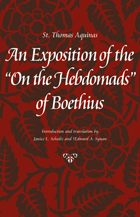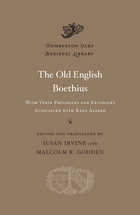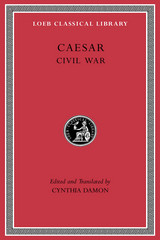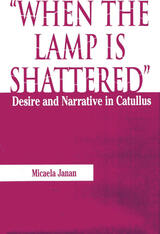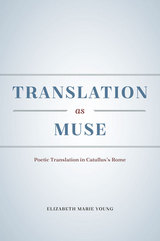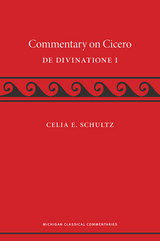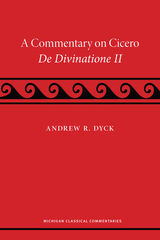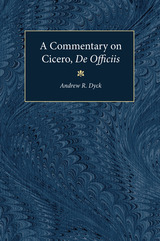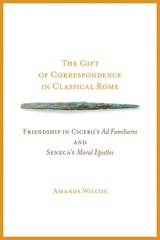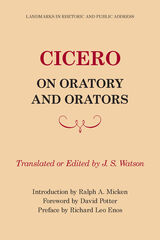Cloth: 978-0-674-99634-2
Library of Congress Classification PA6280.A1 2009
Dewey Decimal Classification 937.05092
Invectives against Antony.
Cicero (Marcus Tullius, 106–43 BC), Roman advocate, orator, politician, poet, and philosopher, about whom we know more than we do of any other Roman, lived through the stirring era that saw the rise, dictatorship, and death of Julius Caesar in a tottering republic. In Cicero’s political speeches and in his correspondence we see the excitement, tension, and intrigue of politics and the part he played in the turmoil of the time. Of about 106 speeches, 58 survive (a few incompletely), 29 of which are addressed to the Roman people or Senate, the rest to jurors. In the fourteenth century Petrarch and other Italian humanists discovered manuscripts containing more than 900 letters, of which more than 800 were written by Cicero, and nearly 100 by others to him. This correspondence affords a revelation of the man, all the more striking because most of the letters were not intended for publication. Six works on rhetorical subjects survive intact and another in fragments. Seven major philosophical works are extant in part or in whole, and there are a number of shorter compositions either preserved or known by title or fragments.
The Loeb Classical Library edition of Cicero is in twenty-nine volumes.
See other books on: Cicero | Cicero, Marcus Tullius | Shackleton Bailey, D. R. | Speeches | Statesmen
See other titles from Harvard University Press


